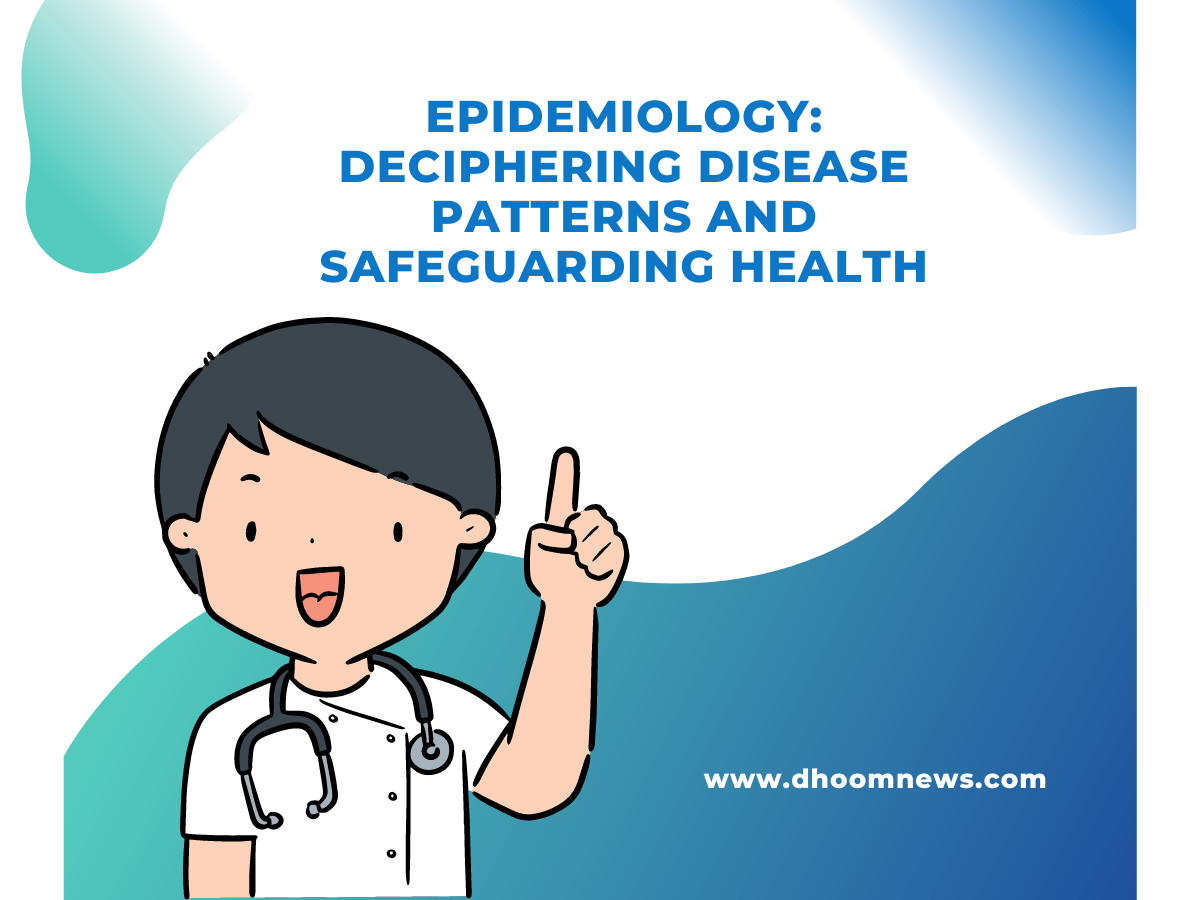The field of epidemiology assumes a paramount role in comprehending the manifestation and dissemination of diseases among populations. By scrutinizing the contributing factors that give rise to disease emergence, epidemiologists offer invaluable insights into preventative strategies and the planning of public health initiatives. In the forthcoming discourse, we shall delve into the foundational concepts, methodologies, and practical applications of epidemiology, casting illumination upon its profound significance in the realm of public health.
Introduction to Epidemiology
Epidemiology stands as a scientific discipline that systematically investigates the patterns, causative agents, and ramifications of health-related occurrences within specific population groups. By delving into the distribution and determinants of diseases, epidemiologists actively contribute to the prevention and control of various health conditions.
Defining the Scope of Epidemiology
At its core, epidemiology entails the comprehensive study of disease prevalence, distribution, and determinants within populations. Its fundamental objective revolves around unraveling the reasons why certain individuals exhibit higher susceptibility to particular diseases. By meticulously exploring patterns and risk factors, epidemiologists strive to enhance health outcomes and curtail the adverse impact of diseases on communities.
Historical Background of Epidemiology
Epidemiology boasts a storied past that traces back several centuries. A notable instance of early epidemiological investigation harkens back to the efforts of John Snow during the 1854 cholera outbreak in London. Through his meticulous mapping of cases, Snow successfully identified a contaminated water source, thereby underscoring the pivotal role of epidemiology in disease control.
Key Concepts in Epidemiology
Population Dynamics
Epidemiology directs its focus towards the study of diseases within populations rather than on an individual basis. By examining large cohorts, researchers can discern trends, risk factors, and patterns that aid in comprehending the broader impact of diseases.
Disease Distribution
Gaining an understanding of how diseases disseminate across populations stands as a foundational aspect of epidemiology. This necessitates a comprehensive analysis of geographical, temporal, and demographic factors to ascertain disease prevalence and incidence.
Risk Factors
The identification of risk factors occupies a pivotal position within the realm of epidemiology. Epidemiologists diligently investigate these factors to devise effective preventive measures.
Study Designs
Epidemiological research harnesses diverse study designs to amass data of scientific import. Each design carries its own merits and limitations, thereby empowering researchers to amass invaluable insights into diseases and their associated risk factors.
Importance of Epidemiology
Epidemiology assumes a vital role in public health by virtue of its profound implications. The data procured from epidemiological endeavors guides the formulation of public health policies, interventions, and the allocation of resources, ultimately culminating in improved health outcomes and a diminished disease burden.
Epidemiological Surveillance
Surveillance represents an indispensable component of epidemiology. By virtue of surveillance systems, timely detection and response to disease outbreaks are enabled, thereby ensuring the swift implementation of effective control measures.
Epidemiological Methods and Tools
Epidemiologists employ a diverse array of methods and tools to probe into diseases and their determinants. These encompass data collection techniques, statistical analyses, and the interpretation of results. Rigorous methodologies engender reliable and accurate findings, thereby contributing to evidence-based decision-making.
Data Collection
Epidemiological studies hinge upon diverse data sources, including surveys, medical records, registries, and surveillance systems. The acquisition of high-quality data stands as a prerequisite for accurate analysis and the derivation of meaningful conclusions.
Analyzing Data
Once data has been amassed, epidemiologists wield statistical techniques to extract insights from the information at hand. Statistical analysis permits the identification of associations, trends, and patterns, thereby shedding light on disease occurrence and risk factors.
Statistical Techniques
These techniques serve as valuable tools for researchers, empowering them to quantify relationships, adjust for confounding variables, and draw meaningful inferences from intricate data.
Interpretation of Results
The interpretation of epidemiological findings necessitates a thorough comprehension of statistical concepts and the underlying principles of the field.
Applications of Epidemiology
Epidemiology finds itself embraced within myriad domains of public health. It informs strategies for disease prevention, shapes public health planning, and substantiates evidence-based medical practices. Some noteworthy applications encompass:
Public Health Planning
Epidemiological data assumes a guiding role in public health planning on local, national, and international scales. Through an assessment of disease burden, identification of high-risk population segments, and evaluation of intervention strategies, epidemiologists enable the effective allocation of resources and the strengthening of healthcare systems.
Challenges in Epidemiology
While epidemiology serves as a highly valuable discipline, it confronts certain challenges that warrant attention and resolution:
Data Quality
Epidemiological studies heavily rely upon data that is accurate, reliable, and standardized. Ensuring data quality, integrity, and homogeneity poses challenges due to variations in data sources, collection methodologies, and reporting practices. Sustained efforts to enhance data quality represent a crucial endeavor aimed at bolstering the reliability of epidemiological findings.
Ethical Considerations
Epidemiological research involves the participation of human subjects, thereby raising ethical concerns pertaining to privacy, informed consent, and data confidentiality. Striking a balance between acquiring valuable data and safeguarding individual rights emerges as a pivotal requirement in conducting ethical epidemiological studies.
Limited Resources
The realm of epidemiology necessitates substantial resources, ranging from funding and personnel to infrastructure. Many countries, especially those with limited healthcare resources, face challenges in undertaking robust epidemiological research and surveillance. Addressing these resource limitations


[…] Byram Healthcare commands unwavering faith within the healthcare domain, acclaimed for its unwavering dedication to dispensing exceptional products and services. Backed by extensive expertise garnered over the years, Byram Healthcare has solidified its standing as a dependable collaborator for individuals seeking medical provisions. The organization specializes in furnishing indispensable articles, encompassing ostomy, urology, wound care, diabetes supplies, and various others. […]